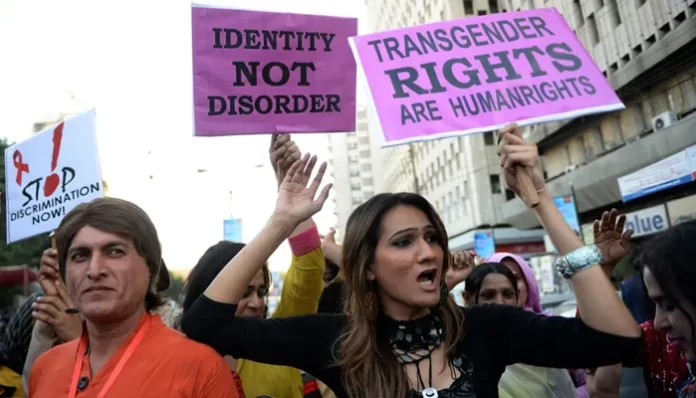Four years ago, Pakistan introduced a law that protects the rights of the transgender population forbids discrimination against it in workplaces, and public places, and grants the option to determine one’s gender on official documents, making itself one of the few nations in the world to do so. Sadly, though, having a law does not guarantee that it would be practiced to protect the discriminated group. Recently, Sindh Assembly approved a 0.5 percent quota for transgenders in the civil service. Hope seems to be emerging for the community that is regularly targeted and harassed in private and public spheres.
A piece of promising news has come out amidst volatility in Pakistan’s political and social arena: Sindh has become the first province to reserve a job quota for the marginalized transgender community. The Sindh Civil Servants (Amendment) Bill-2021, which allocates a 0.5 percent quota of positions in the Sindh government to members of the transgender community, was unanimously approved by the Sindh Assembly on Monday.
Mukesh Kumar Chawla, the Sindh Minister for Parliamentary Affairs, introduced the bill in the house. “The transgender community is an underrepresented segment of our society. Violence, social and political marginalization, economic inequity and insecurity, and emotional insensitivity have all plagued their past in Pakistan. The Sindh government has decided to reserve a 0.5 percent quota for transgender people for this purpose, so it is expedient to amend the Sindh Civil Servants Act, 1973”, the incumbent told the media. “It is essential to empower and include such a weak and vulnerable community in the mainstream of society,” the draught of the bill stated.
Four years ago, Pakistan became one of the few countries in the world to enact a law that safeguards the rights of the transgender community, prohibits discrimination against it in schools, workplaces, and public settings, and gives the right to choose gender on official documents. But sadly, having a law in a country like Pakistan does not mean it will be implemented to protect the discriminated group. A component of the law that calls for the creation of protection centers where transgender people can get temporary accommodation, legal assistance, and mental health treatments has only been implemented in Islamabad, the nation’s capital.
According to data compiled by the EU-funded Trans Murder Monitoring project, Pakistan has recently averaged about 10 homicides of transgender people annually — more than before the law was passed and, in terms of population, significantly more than its neighbors. Transgender women are the victims most frequently. Rights organizations claim that since many hate crimes go unreported, the actual numbers are substantially higher.
Like many other countries, the fight for transgender rights is still tough in Pakistan. There are regular reports of hate crimes against transgenders, especially in Khyber Pukhtunkhwa province.
However, a more vocal and aspirational generation of transgender Pakistanis has emerged in recent years that is tied to the international rights movement. One of Pakistan’s first transgender lawyers, Nisha Rao, 29, claimed that by seeking higher education, she is combating society’s negative opinion of the minority. The community is fighting the negative stereotypes about them thanks to education, the speaker claimed. Reem Sharif, a transsexual woman, became an advisor for the Rawalpindi police. According to reports, Dr. Gill was the first transgender doctor in the nation.
According to Maria Sjödin, the interim executive director of OutRight Action International, Pakistan’s 2018 law “was a fantastic step forward,” one that most of the rest of the globe hasn’t yet made.
While homicide and the issues of political and social subjugation are still a vexing concern for the trans community in the country, measures such as allocating a quota in the civil services, as the Sindh government has done, pave a trajectory for the marginalized population to have a better say, and space in the society. Reforms as such must be made on the federal level too, and other provinces should follow the practice to protect the interests of the vulnerable population.




